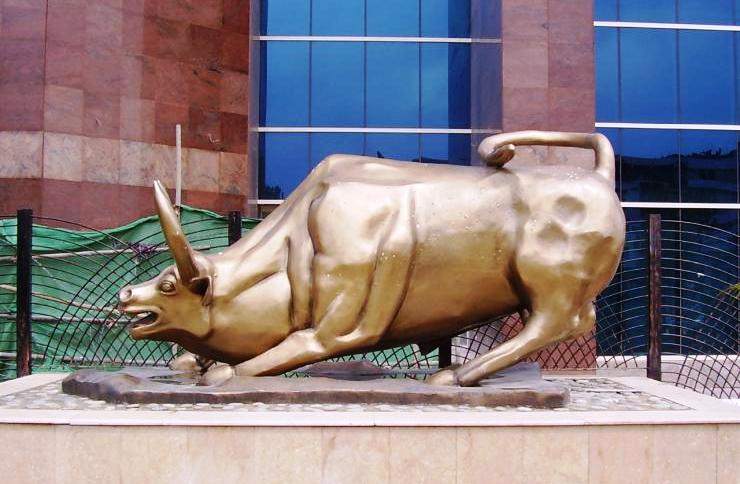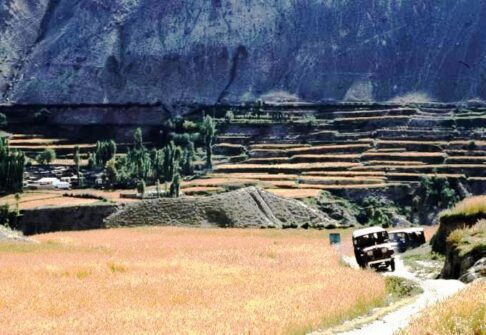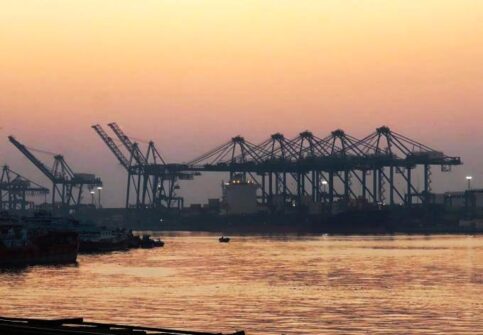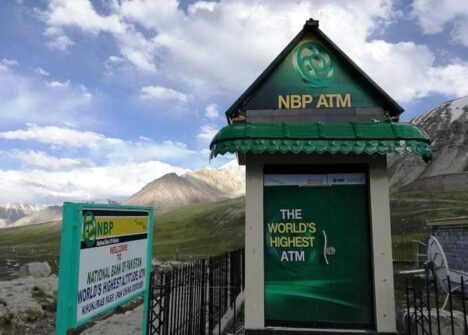The Economic Crisis.

Pakistan has been in a situation of heavy economic crisis for some time now, perhaps one of the worst in its history, further aggravated by internal political instability and the massive floods of 2022, the toll of which was almost little short of dramatic: around 1,700 people lost their lives, 33 million were left homeless, around 800 thousand cattle and other animals died, and numerous school and healthcare infrastructures were damaged.
This tragedy greatly increased the inflation that was already gripping the country and which, reaching 25%, has mainly affected the prices of food goods (which are increasing also due to the war in Ukraine), generated the stagnation of growth and the halving of foreign exchange reserves. These factors produced social unrest and displacement with the looting in flour distribution centres set up throughout the country. Furthermore, the monsoon rains, which hit Pakistan in 2023, have greatly worsened the situation which currently appears catastrophic also due to the repercussions on the lives of less well-off populations.

The economic structure of the country is mainly based on agriculture. File Swm
The economic structure of the country is mainly based on agriculture characterized by the concentration of large estates whose holders are interconnected to political power, both at a federal and provincial level. This arrangement often results in the non-payment of taxes and determines an underground economy estimated at 100% of the official GDP.The lack of industrial development has meant that the country has become dependent on foreign exports, resulting in a chronic trade balance deficit, exacerbated by the current global economic situation. To correct this imbalance, tariff and non-tariff barriers were introduced in 2017, which however also discourage the penetration of foreign economic actors despite the Special Economic Zones (SEZ).
The energy crisis also weighs on the economic crisis and has a long history. In the 1950s, a natural gas field was discovered in Sui, which contributed to the development of a dense infrastructure network to produce electricity, which today is insufficient to cope with the constant increase in consumption also caused by the exceptional population growth of the country and its middle class. This has also led to a substantial increase in energy imports, especially from the Gulf countries. However, the outbreak of the war in Ukraine forced the European Union to quickly diversify its energy and supply sources, due to the decrease in supplies of Russian gas. This has made Europe a very sought-after location to the point of encouraging suppliers to increase their business with the countries of the Old Continent, thus reducing availability to Asian customers including Pakistan which, on the other hand, has begun to import gas and oil from Russia.

Karachi Seaport. CC BY-SA 4.0/King Eliot
Furthermore, it should be added that the war in Ukraine also determined the outcome of the agreements with the IMF. In the opinion of some analysts, Islamabad, in fact, sold weapons to the United States in exchange for receiving the last tranche of a loan from the IMF, facilitated by US mediation. These weapons would subsequently have been destined for the Ukrainian army and everything would have happened following a secret agreement between Pakistan and the United States, as disclosed by the investigative media The Intercept, based on internal government documents. According to analysts, this would have determined the change in Pakistan’s posture in the geopolitical sphere and the consequent reward in terms of economic aid from the IMF.
Again, according to rumours, the agreement between Pakistan and the United States took place after the removal of President Imran Khan, who on 10 April 2022 was removed by a no-confidence vote by Parliament and then arrested.
The former president was trying to negotiate better conditions with the IMF for loans, while on a foreign policy level he was relocating the country, a historically of the United States, initiating greater ties with Russia and China and expressing neutrality on the war in Ukraine.
The loan of over 2.7 billion dollars allowed Islamabad to avoid an imminent default on foreign debt, even if the conditions requested by the IMF to restructure the economy have triggered new protests from the population due to the elimination of subsidies for fuel and the consequent surge in prices.

World’s highest ATM at a height of 16,007 feet above sea level installed by The National Bank of Pakistan, (NBP) at the Pak-China border, Khunjerab Pass.
In 2019, financed with IMF loans, Pakistan entered the rescue program for its economy and the package included loans of around six billion dollars, increased to seven in 2022. The agreement was blocked for a long time because the IMF was not sure whether Pakistan was capable of implementing some reforms. The granting of loans, as always happens in these cases, is in fact subordinate to profound economic reforms, which Pakistan has not always been able to respect. This dynamic is quite well known in the economic history of the country which since the 1980s has participated in over twenty rescue programs, most of which were suspended because they were incapable of achieving the ambitious pre-established objectives or because they were paralyzed by political instability. As is evident, the repeated liquidity injections have failed to revive the country’s fortunes as they were subordinated to the request for rigorous fiscal measures which resulted in an increase in the tax burden on citizens, combined with drastic cuts in public spending in key sectors such as transport, infrastructure, health, and safety.
Over the years, however, foreign benefactors have always come to the country’s aid, the USA during the Cold War and later China, also in order to avoid the risk of a country equipped with nuclear weapons going out of control. Having also linked Pakistan to the BRI through the China-Pakistan Economic Corridor (CPEC), Beijing fears a possible failure of the country. Such logic, however, leads Pakistani governments, which alternate in power, to pursue an aid policy rather than encouraging economic development plans and fiscal reforms.

Sunday textile market on the sidewalks of Karachi. CC BY 2.0/ Steve Evans
Despite the precarious conditions in which the country finds itself, it must be borne in mind that in recent years it has risen considerably, together with Iran and Uzbekistan, in the Global Innovation Index (GII). This is an aggregate index that includes various factors difficult to measure objectively, that were developed by the World Intellectual Property Organization, and which represents an excellent compass for understanding the direction taken regarding technological innovation. A trend confirmed by the results in the technology sector was recorded in 2021, the year in which investments in national start-ups rose to 350 million dollars compared to 36 million in 2019. In 2022 there was a physiological decline, but the performance still remains higher than the pre-pandemic level. This trend has pushed the Government to work on the definition of five Special Technology Zones (SZ) – located in Islamabad, Punjab, Sindh, KPK, Balochistan, GB and AJK – with the aim of encouraging companies operating in the technological sector, both local and global, to open their operations in the country. (Photo: Statue of a bull outside Islamabad Stock Exchange, Islamabad, Pakistan. CC BY-SA 3.0/Danish47)
(F.R.)



